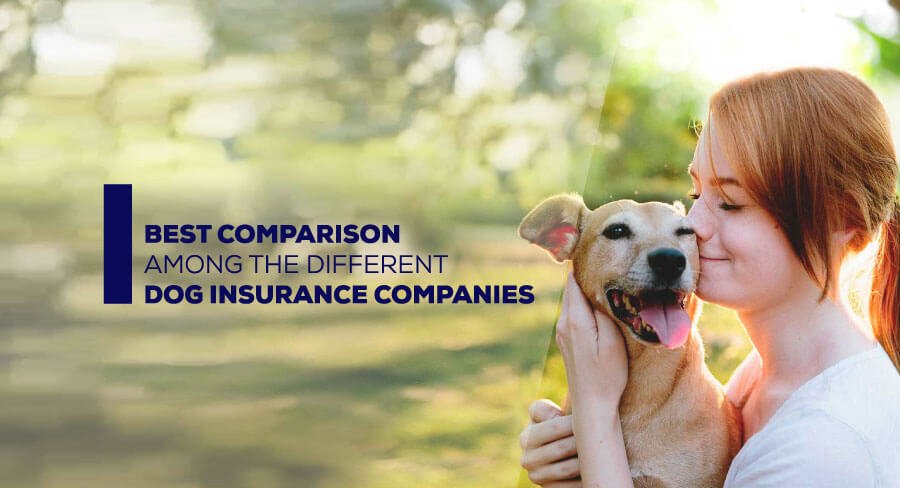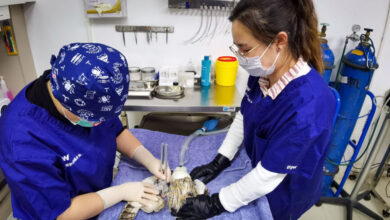5 Best Dog Insurance Comparison – Best Dog Insurance Quotes
If you have a dog, then of course you are very worried about how you will pay a big bill to the vet. Dog insurance has created a huge impact if you want to protect your dog from an unexpected veterinarian’s full bill if the dog is injured or suffers from a serious illness.
Although dog insurance coverage depends on a variety of factors, there are some basic things that are important to know. We are discussing some of the issues so that a dog lover can easily draw the best dog insurance comparison and choose the cheapest dog insurance coverage for his dog.
Best Dog Insurance Comparison
The best dog insurance comparison is shown in the table below. E.g.-
| Companies | Premium for Dogs | Premium for Cats | Rating | App |
|---|---|---|---|---|
| Pets Best | $18.80 | $11.13 | 3.9 | Yes |
| Healthy Paws | $39.10 | $12.71 | 4.3 | Yes |
| Trupanion | $63.61 | $28.06 | 4.1 | Yes |
| Pet Wellness SM | $60.52 | $35.45 | 3.6 | Yes |
| Fetch by The Dodo | N/A | N/A | 3.4 | Yes |

5 Cheapest Dog Insurance Cover
Below are some of the companies that offer dog insurance. So that a dog lover can easily choose dog health insurance and dog training insurance for his dog. However, check out the descriptions below-
1. Pets Best – Pet Health Insurance
Pets Best is a pet insurance company that offers customizable coverage, with the option to add on routine care coverage. It also has an extensive list of covered conditions, services, and treatments that can be used to customize your policy.
Pets Best is a pet insurance company that offers customizable coverage, with the option to add on routine care coverage. It also has an extensive list of covered conditions, services, and treatments that can be used to customize your policy.
In fact, Pets Best scored highest among companies in our rating for its comprehensive list of covered conditions and customizable plans. Pets Best’s average monthly cost for accident-only coverage for dogs was $17.99 compared to the overall average of $22.95. For cats, the average was $13.63 compared to $14.15 overall.
One plan from Pets Best covers accidents and illnesses for cats and dogs with no age restrictions on enrollment. This plan has three levels, for example, Elite, Plus, and Essential. Going up the tiers adds benefits like covering exam fees for accidents and illnesses and coverage for rehab. The company also has two wellness plan options to cover things like microchipping, tick and flea prevention, neutering/spaying, deworming, and vaccinations.
2. Healthy Paws – Pet Insurance and Foundation
It doesn’t hurt to have human friends, of course, but if you’re a pet owner, your pets are family. They love you unconditionally, and you can’t help but love them right back. If you want to take the next step in showing your pet how much you care, pet insurance is a great way to do it.
Many pet owners don’t realize that their furry friends can get sick or injured as easily as people do. In fact, according to The Association for Pet Obesity Prevention (APOP), 60% of cats and 56% of dogs in the U.S. are overweight or obese. Being overweight can increase a pet’s risk for various health problems that can put a strain on your wallet.
There are lots of pet insurance companies out there — some better than others — so we’ll give you an in-depth look at one of the best: Healthy Paws Pet Insurance & Foundation.
3. Trupanion – Medical Insurance for the Life of Your Pet
The Trupanion policy uses a reimbursement model, which means that you pay the vet bill upfront and then get reimbursed by the insurance company once it has processed your claim.
Trupanion offers comprehensive coverage for accidents and illnesses, including hereditary and congenital conditions such as hip dysplasia and heart conditions. It also covers exam fees, lab fees, hospitalization, prescription medications, alternative therapies (with rider), behavioral therapies (with rider), and hospice care. The plan also covers:
- Emergency hospitalization/surgery/intensive care unit services.
- X-rays and laboratory tests.
- Prescription medication and diet foods.
- Prosthetic limbs/devices are used to aid in mobility due to loss of a limb or joint function resulting from an accident or illness.
- Alternative therapies like acupuncture, hydrotherapy, and chiropractic care (as long as they result from an injury or illness).
4. Pet Wellness SM
PetWellnessSM– This plan covers routine and preventative care – This plan covers everything included in the PetWellnessSM plan, as well as accidents and illnesses. However, it does not cover pre-existing conditions.
PetWellnessSM Wellness – This plan is similar to the PetWellnessSM Accident & Illness plan, but it does not cover injuries or illnesses.
You can choose from three reimbursement levels: 70%, 80%, or 90%. You also have the option of selecting either a $250 or $500 annual deductible and the ability to select an annual maximum benefit between $5,000 and $15,000.
Nationwide offers coverage for dogs and cats, as well as exotic pets. For example, Nationwide is the only company in our pet insurance rating that offers coverage for birds and other exotic pets such as chinchillas, ferrets, rats, amphibians, lizards, snakes, and tortoises.
5. Fetch by The Dodo (formerly Petplan)
There are no options for add-ons. Nevertheless, one benefit that Fetch’s plan offers is coverage for vet exam fees when your pet is injured or sick.
Additionally, Fetch by The Dodo says it will cover up to $1,000 in boarding fees for your pet should you be hospitalized. The policies of it come with an annual payment and deductible limits.
We were impressed with the number of customer reviews we found for Fetch by The Dodo on its website. Most of the reviews were positive — customers commented on the ease of filing claims and the company’s fast response times.
Fetch by The Dodo has an online quote generator tool that allows you to get an estimate without having to provide your personal information. This makes it easy to compare prices between companies before committing to a lengthy application process with each provider.
What is Dog Insurance?
Dog insurance is reimbursing you for vet bills, the amount of coverage you purchase is not the same thing as your annual deductible. For example, if you choose 80% reimbursement and $1,000 in annual coverage that means the insurance plan will pay up to $1,000 a year at 80% of the bill. If you’re deductible is $500 that means you’d pay the first $500 in vet bills, and then be eligible to receive up to $1,000 a year in reimbursement.
If you never reach the deductible, you won’t get any money back. But because pet insurance for dogs covers accidents and illnesses, it’s very likely that your dog will need at least some veterinary care. In fact, 70% of dogs and cats develop a health condition requiring treatment by age 10.
The pet insurance market is growing rapidly as veterinarian costs rise and more companies offer coverage. Pet insurers collected about $816 million in premiums in 2017 (the most recent year with available data). The industry has grown steadily for at least five years and nearly doubled in size since 2011.
How to Buy a Best Dog Insurance Plan?
The best way to find a policy within your budget is to compare dog insurance quotes among several different insurers. Look here for tips on how to find cheap dog insurance.
- Online: Many dog insurance providers offer free quotes on their websites. You will likely answer a few basic questions about your dog’s breed, age, and medical history. You can also compare a number of dog insurance companies at once on an independent site.
- Email, Phone, and In-Person: You may contact a representative from an insurance company or an independent insurance agent if you would prefer to correspond directly.
- Review: When choosing a dog insurance plan, consider what is and isn’t covered, as well as deductibles, reimbursement percentages, and coverage limits.
- Get Quotes: Once you and your dogs have narrowed down your choices, contact the provider via phone or go to the website to request a quote. Quote forms vary in size and complexity, but always include the details you need to request a personalized plan for your dog.
- Select Plan: Once you choose a company and get a quote, you’ll need to select a plan, if applicable, as well as a deductible level, payout limits, and reimbursement rate.
- Check Dog’s Medical Records: When you buy dog insurance, your insurer may require that you schedule a visit with your vet or have them send medical records to the insurer.
What Does Dog Insurance Cover?
Most policies cover the cost of diagnostics, treatment, medication, and hospital stays. Common conditions include:
- Accidents like broken bones, lacerations, and poisoning.
- Illnesses like cancer and infections.
- Hereditary/congenital conditions like hip dysplasia and heart problems.
- Doctors may order blood work, x-rays, or more specific tests – including magnetic resonance imaging (MRI) and CAT scans – to get a clearer view of your condition.
- Surgery, including some orthopedic surgeries and dental procedures.
What Doesn’t Dog Insurance Cover?
There are some cases when a claim will not be reimbursed. Here are some examples:
- When a dog has symptoms of various diseases or injuries before making a dog insurance cover, it can be difficult to get a dog insurance quote for that dog.
- No company is interested in providing dog health insurance for anything related to ear cropping, nail trimming, tail docking, declawing, etc.
- There are some companies that exclude your dog’s various health examination fees. So when doing the best dog insurance comparison, keep that in mind.
- Many dog lovers take their dogs to various spas as a hobby, the cost of which will not be borne by any VPI dog insurance company.
- The cost of any breeding-related items is not included in dogs for insurance.
- Everyday food for your dog is not covered by any insurance. There are, however, some companies that specialize in specialty food insurance. So, you can compare dog insurance these things.



